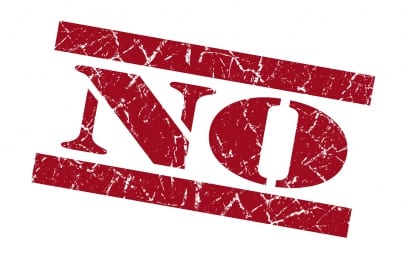When the Liberal government announced gay men from Syria will be prioritized for refugee status, we began to look at previous LGBT refugee claims made to Canada’s Refugee Appeals Division (RAD).
The United Nations High Commissioner for Refugees has guidelines for how front-line workers should try to determine the sexual orientation of refugee claimants. These include suggestions like exploring applicants’ experiences of difference or shame instead of asking detailed questions about their sex lives.
But a look at judgments from the RAD shows that immigration officials sometimes don’t follow that advice. Instead, they will often nitpick statements and discredit the testimony of refugees based on unfounded ideas of how sexual orientation works.
We’ve included the judgments from the RAD and the relevant sections, summarized and re-stated for length and clarity, so you can see for yourself what the process can look like — here are six more reasons why some applicants claiming persecution for their sexuality were denied refugee status.
1. Because the word “relationship” can be ambiguous

(NBC/Giphy)
Canada: So did you have two relationships with women before you left Ghana?
Refugee: No. I’m in a relationship with a woman in Canada now, and I had sexual relationships with women in Ghana, but it wasn’t serious.
Canada: So how many not committed, not serious relationship have you had?
Refugee: I’ve been with three other women. But those weren’t committed.
Canada: But you said before that one of those lasted for three years. How is that not serious?
Refugee: Uhm, it was more casual and I didn’t really have feelings for her? Have you never heard of friends-with-benefits?
Canada: Not a lesbian.
X (Re), 2015 CanLII 28306 (CA IRB)
Sections 32-36
2. You forgot how old your ex was when you met

(CityTV/ConfessingCinephile)
Canada: When did you first start dating your girlfriend?
Refugee: 2001. We were together for 12 years.
Canada: What was her birth date?
Refugee: I included it in my documents.
Canada: How old was she when you first started dating?
Refugee: I don’t remember exactly how old she was.
Canada: You’re not a lesbian. Real lesbians always remember.
X (Re), 2014 CanLII 95987 (CA IRB)
18-19, 35-36
3. You had a secret boyfriend
(CW/FourFour)
Canada: So you had a boyfriend while you were in Morocco?
Refugee: Yes, but we tried our best to keep it secret.
Canada: But why would you date someone if you were trying to keep it a secret that you’re gay?
Refugee: Like I said, we tried to keep it a secret.
Canada: I find that highly unlikely.
X (Re), 2014 CanLII 66647 (CA IRB)
Sections 8, 34
4. The panel misheard you

(Deephousepage)
Refugee: My family elder told me that my uncle was threatening to report me to the police if I went back to Nigeria.
Canada: Your family elder threatened to report you to the police? That’s not what it says in your affidavit.
Refugee: That’s not what I said.
Canada: That’s what I heard.
Refugee: What? No, it was my uncle who was going to report me —
Canada: You’re clearly not gay.
Galogaza v. Canada (Citizenship and Immigration), 2015 FC 407
Sections 19-22
5. You never went to the police

(Yugottabesonice/Tumblr)
Canada: So you’re from Croatia eh? I hear that’s where they film Game of Thrones.
Refugee: Uhm, what?
Canada: Did you know that the actor who plays Hodor is gay? Why would they film the show in Croatia if it wasn’t safe for gay people?
Refugee: Actually, it’s pretty unsafe. There was a Pride march in Split in 2011 where 10,000 homophobes attacked 300 marchers and the police didn’t do anything to protect them.
Canada: So why didn’t you go to the police when you felt unsafe?
Refugee: Have you been listening to me?
Canada: Sorry. I don’t believe you.
Galogaza v. Canada (Citizenship and Immigration), 2015 FC 407
Sections 6-15
6. Being attacked twice doesn’t count as often

(HBO/Reddit)
Canada: So you’re a gay Roma man from Slovakia. That must have been tough.
Refugee: Yes. I was physically attacked twice while I was in trade school.
Canada: In the documents you provided, you said that you were “often” beaten up. What do you mean by “beaten up?”
Refugee: Either physically or verbally attacked.
Canada: So were you “beaten up” often or twice?
Refugee: I was physically attacked twice and verbally attacked many more times.
Canada: Seems like a contradiction. You’re probably lying.
Banda v. Canada (Citizenship and Immigration), 2015 FC 474 (CanLII)
Section 18-21
(Previous: Five reasons Canada might decide you’re not gay.)

 Why you can trust Xtra
Why you can trust Xtra


